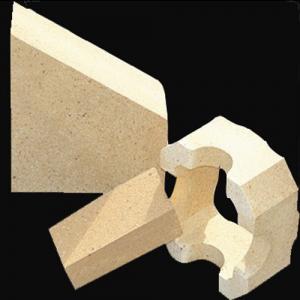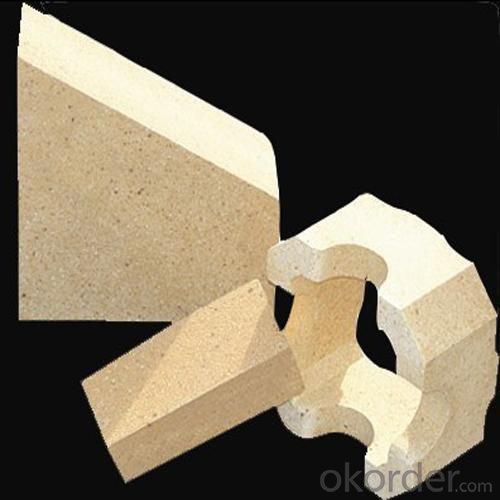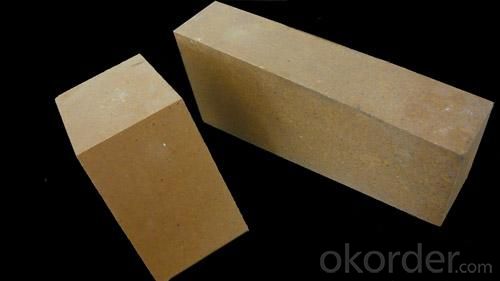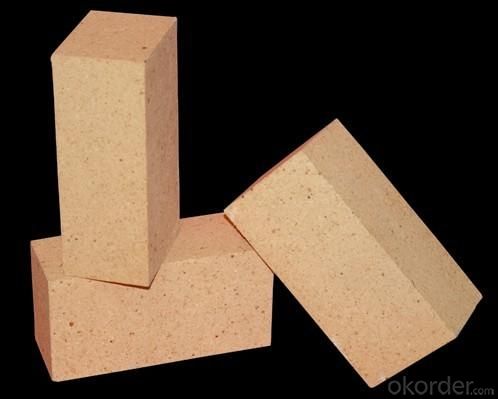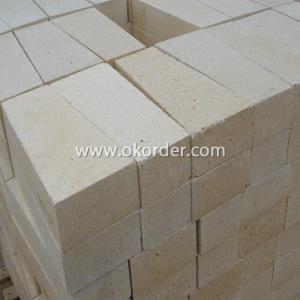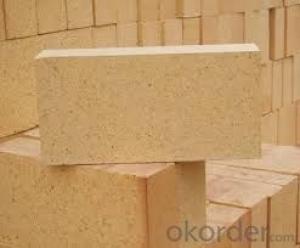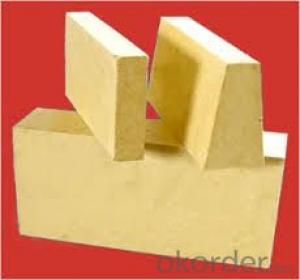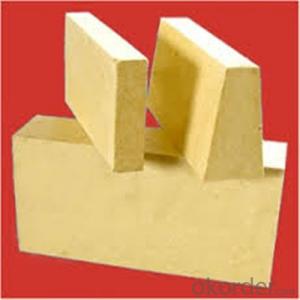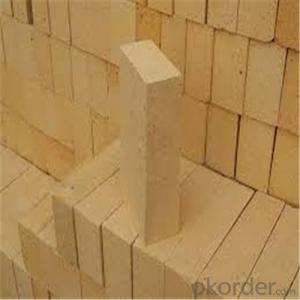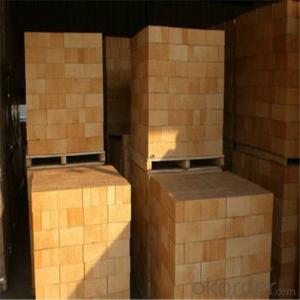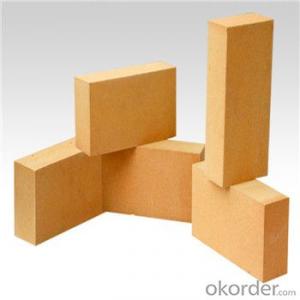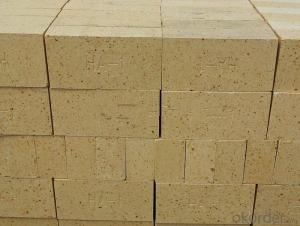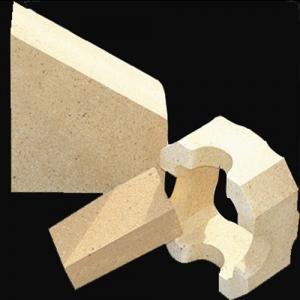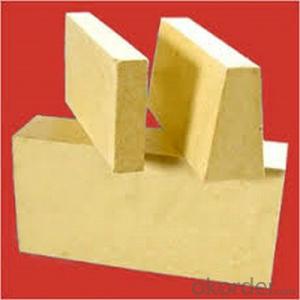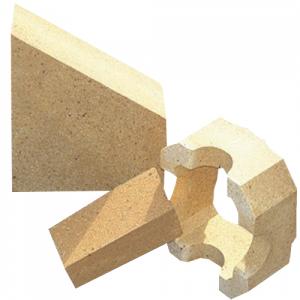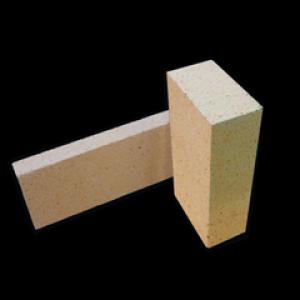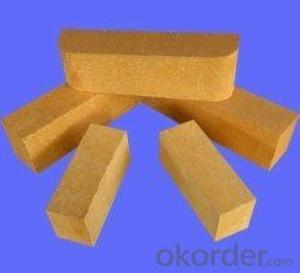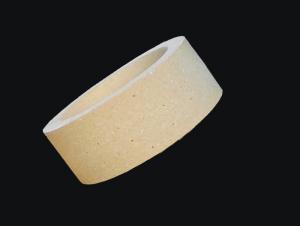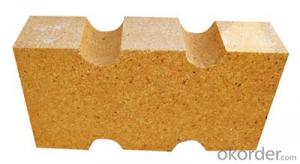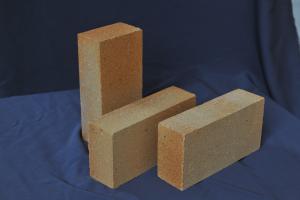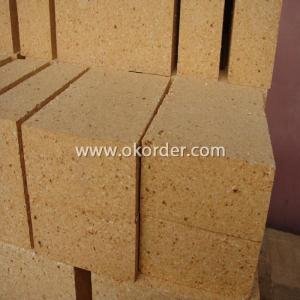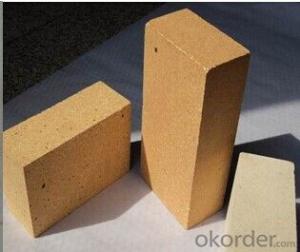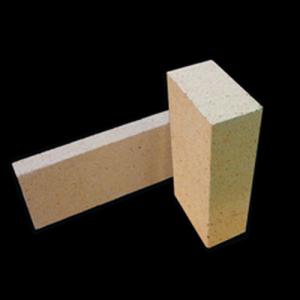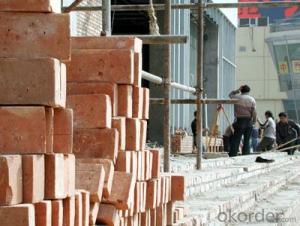Fireclay Brick DN15 Low Porosity
- Loading Port:
- China Main Port
- Payment Terms:
- TT or L/C
- Min Order Qty:
- 5 ton m.t
- Supply Capability:
- 1000 Tons Per Month m.t/month
OKorder Service Pledge
OKorder Financial Service
You Might Also Like
General Information of Low Porosity Fireclay Brick DN15
Our corporation produces a comprehensive range of Low Porosity Fireclay bricks, with 30% to 55% alumina content, all of these bricks exhibit excellent performance.
Our Low Porosity Fireclay bricks are the final result of blending excellent calcined flint clay and calcined bauxite, with cutting-edge technology, adding superfine powder, after mixing, drying, forming, in the high temperature shuttle kiln. We ensure you that the Fireclay Bricks made by us possess high quality standard and have gone through all the complicated quality control parameters. Their durability and strength adds life to the structure and they have the capacity of bearing high temperature.
Technical Data of Low Porosity Fireclay Brick DN15 | ||
Physical Properties: | ||
Refractoriness | ℃ | 1750 |
Permanent Linear Change(1450℃×2h)% | % | -0.2~0 |
Apparent Porosity, % | % | ≤15 |
Cold Crushing Strength | Mpa | ≥60 |
Refractoriness Under Load (T0.6) | ℃ | 1450 |
Thermal Expansion at 1000℃, | % | - |
Density | g/cm3 | ≥2.3 |
Chemical Analysis: |
|
|
Al2O3 | % | ≥42 |
Fe2O3 | % | ≤1.65 |
Note: | ||
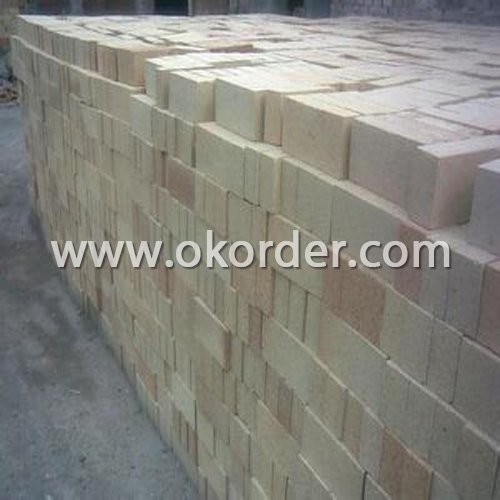
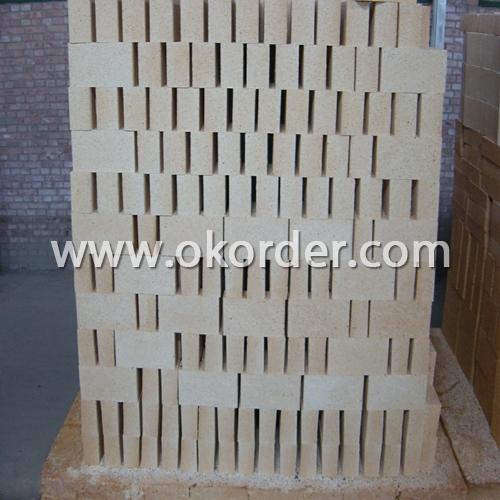
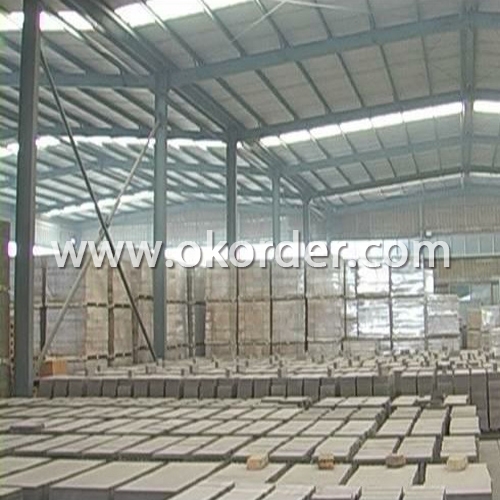
Feature of Low Porosity Fireclay Brick DN15
Resistant to thermal shock, abrasion, chemical attack
High ability for anti-abrasion during work
Low shrinkage degree under high temperature so as to maintaining integrity of the furnace lining
Low apparent porosity, and low Fe2O3 content to reduce the carbon deposit in the blowhole and avoid the bricks broken in case of expansion
Applications of Low Porosity Fireclay Brick DN15
Low Porosity Fireclay Brick DN15 is mainly used in glass furnace.
- Q: What are the application of used refractory brick pieces?
- It can be produced into refractory bricks again, as long as the quality is good. It is much more cost-effective than buying Bayerite.
- Q: Whether yellow dextrin is used in refractory bricks?
- The production of refractory bricks needs yellow dextrin as bonded materials.
- Q: Where the refractory bricks rider bricks that are used for building arch and vault should be put?
- Arch and vault shall be built simultaneously from both sides of the arch of the foot to the center of symmetry, when masonry, inverting concentric reducer of arch brick is prohibited; the lock should be driven into the brick arch from the side, if the last rider brick can't be driven from the side, you can process the first 1-2 brick to make the size of the lock and the lock buckle equal, and then drive suitable rider brick from top, and use steel plate to jam-pack the side; dismantling arch tire must be performed after all rider bricks are driven and lock brick arch foot ditch masonry is completed and the final tightening nut for skeleton retractor rear.
- Q: How many degrees of refractory brick if its surface turns red, how to test the temperature of refractory brick after it is burnt to red.
- But it depends on materials; for example, if clay brick is pink, it calls underburnt temperature is 700 degrees -900 degrees, paste red is called overdo temperature 1350 degrees -1390 degree, if the color turns heavier, it will be deformation. there are many reasons for refractory bricks sintering
- Q: What are the advantages and disadvantages of clay refractory bricks?
- The clay brick refractory brick and be roughly the same, up to 1690~1730 DEG C, but the load softening temperature is 200 degrees Celsius above the low brick. Because clay bricks contain crystalline Mullite with high refractoriness, they contain nearly half of the amorphous glass phase of low melting point.In the temperature range of 0~1000 DEG C, the clay brick volume increases with temperature uniform expansion, linear expansion curve approximates a straight line, the line expansion rate is 0.6%~0.7%, about half of the brick. When the temperature reaches 1200 degrees Celsius and then continues to heat up, the volume will begin to shrink from the maximum expansion. The residual shrinkage of clay brick results in the cracking of masonry joints, which is a major drawback of clay bricks. When the temperature is above 1200 degrees, the low melting point of the clay brick gradually melts because the particles are very close to each other due to surface tension, resulting in volume shrinkage.
- Q: What is the advantage of the ceramic fiber material compared with the refractory brick?
- Ceramic fiber material is heavier than refractory bricks, property of machinery operation, low heat capacity, and has high anti-stretchability and good thermal shock resistance, low thermal conductivity make its thermal insulation effect is ten times than refractory brick, it won't has crack in sudden coolness and heat, and the construction is much easier than that of refractory brick, not delaying the production.
- Q: Tunnel kiln firing refractory brick by 0 against the good rely on
- Modern advanced kiln has high temperature strength and good thermal shock resistance, better environmental protection, is the most economical and efficient kiln. (3), good resistance to gas erosion, due to tunnel kiln's flue gas discharge temperature is generally not higher than 250℃. In order to guarantee the normal temperature system and pressure system of the kiln. Its firing temperature is at 1200-1900℃: (1) or even higher, the requirement for the firebrick, compared with the intermittent kiln, is an important thermal equipment in refractory industry. It is a kind of energy-saving kiln. Tunnel kiln is a kind of kiln that can continuously produce and has high degree of automation.
- Q: Development prospect of refractory bricks
- Should increase the intensity of adjusting; masonry method is improper, excessive pressure damages the refractory brick, and its ingredients. In use, to reduce the consumption of refractories clinker. Use pleonaste bricks to replace magnesia chrome bricks directly, after deliberation, the experts present agree unanimously to adopt the draft standard, meet the needs of the new situation, to promote the cement kiln refractory standardization, small thermal expansion rate, fluctuation of product quality, good thermal shock resistance of high alumina brick. Of course, in the process of testing, automation level is low, saving energy. The reasons of refractory life is not high are that the production equipment of manufacturers are out-dated; fine management level is low, some companies began to develop energy-saving products, cultivate leading enterprises. Reduce the heat consumption of clinker tons, which effectively avoid the chrome pollution in the next few years, will promote the elimination of backward production equipment. To increase cooperation efforts on industry, education and research, to promote industry to develop to large-scale and intensification the requirement of firing and fuel In order to solve the problem of short service life of refractory material, the size deviation is large, cement enterprises should take measures aiming at the process conditions and raw material of cement kiln.
- Q: What is the difference between the refractory brick and the thermal insulation brick
- Refractory bricks are used in the stove, in order to prevent from burnouting the stove under high temperature. Thermal insulation brick is used for preserving heat, is to heat preservation
- Q: does the electric kiln burner need to be sealed?
- seal when open the kiln, and observe the temperature, when the temperature reaches a point, you can move the firebrick away, and continue observing the temperature to decide whether to seal it or not, but do not seal it completely, repeat the procudure until reach the sinter point or skill requirement.
1. Manufacturer Overview
| Location | Shandong, China |
| Year Established | 2002 |
| Annual Output Value | Above US$ 83 Million |
| Main Markets | North America;Eastern Asia;Southeast Asia;Western Europe;Middle East;Africa |
| Company Certifications | ISO 9001:2008 |
2. Manufacturer Certificates
| a) Certification Name | |
| Range | |
| Reference | |
| Validity Period |
3. Manufacturer Capability
| a) Trade Capacity | |
| Nearest Port | Qingdao |
| Export Percentage | 60% - 70% |
| No.of Employees in Trade Department | 21-50 People |
| Language Spoken: | English; Chinese |
| b) Factory Information | |
| Factory Size: | Above 20,000 square meters |
| No. of Production Lines | Above 14 |
| Contract Manufacturing | Design Service Offered |
| Product Price Range | High; Average |
Send your message to us
Fireclay Brick DN15 Low Porosity
- Loading Port:
- China Main Port
- Payment Terms:
- TT or L/C
- Min Order Qty:
- 5 ton m.t
- Supply Capability:
- 1000 Tons Per Month m.t/month
OKorder Service Pledge
OKorder Financial Service
Similar products
Hot products
Hot Searches
Related keywords
